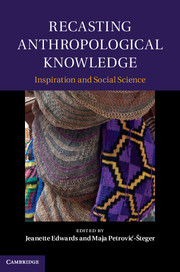Book contents
- Frontmatter
- Contents
- Contributors
- Acknowledgements
- 1 Introduction
- 2 Writing the parallax gap
- 3 Too big to fail
- 4 ???Hybrid custom??? and legal description in Papua New Guinea
- 5 Entomological extensions
- 6 Kinship and the core house
- 7 Invisible families
- 8 Knowledge in a critical mode
- 9 Spools, loops and traces
- 10 Inspiring Strathern
- Bibliography
- Index
7 - Invisible families
imagining relations in families based on same-sex partnerships
Published online by Cambridge University Press: 07 September 2011
- Frontmatter
- Contents
- Contributors
- Acknowledgements
- 1 Introduction
- 2 Writing the parallax gap
- 3 Too big to fail
- 4 ???Hybrid custom??? and legal description in Papua New Guinea
- 5 Entomological extensions
- 6 Kinship and the core house
- 7 Invisible families
- 8 Knowledge in a critical mode
- 9 Spools, loops and traces
- 10 Inspiring Strathern
- Bibliography
- Index
Summary
The summer of 2005 was marked by the first Pride march in Latvia. It greatly disturbed the seemingly peaceful and uniform Latvian social order and was the catalyst for a massive protest. Government officials, left-wing and right-wing radicals and members of religious organisations were amongst those who protested against the ‘appearance’ of homosexuality in public places. The Pride march was banned the following year. The official reason given referred to the inability of the government to guarantee the security of participants. Some of the planned events were held privately. But this did not stop protesters who claimed to be defending ‘the nation and family values’ staging a protest action, throwing human excrement and splashing holy water on people attending the private events. The Latvian Parliament reacted to the situation by revising the official definition of marriage and family in the Latvian Constitution which, until then, had not been specified as a union between a man and a woman. Such amendments were legally pointless, as the Civil Law already used this definition. Parliamentarians, however, claimed it was necessary to protect the family at the highest legal level possible.
The Latvian obsession with definitions of marriage also needs to be seen in the light of changes taking place elsewhere in Europe such as decreasing rates of marriage and increasing numbers of children born outside marriage. Currently around 45 per cent of children in Latvia are born outside marriage, and children are raised by one parent, in most cases the mother, in one third of families.
- Type
- Chapter
- Information
- Recasting Anthropological KnowledgeInspiration and Social Science, pp. 106 - 124Publisher: Cambridge University PressPrint publication year: 2011



